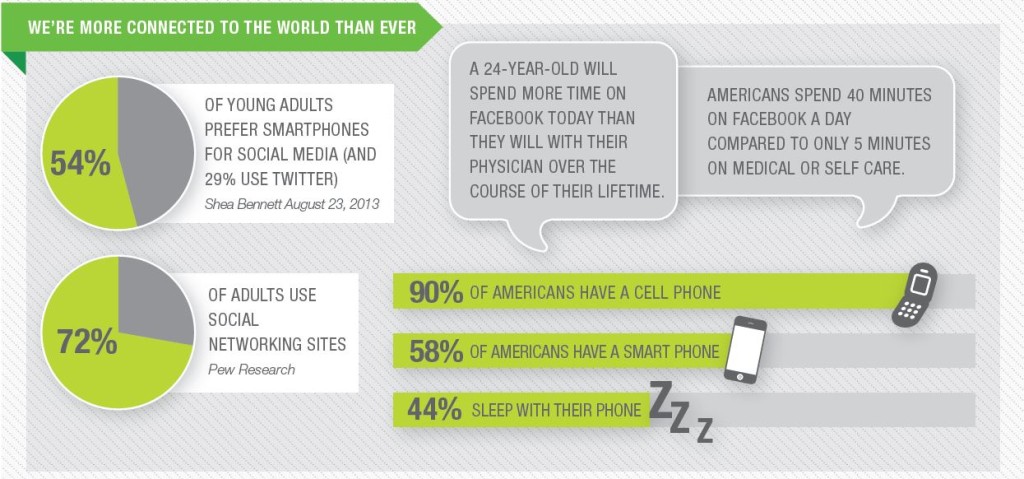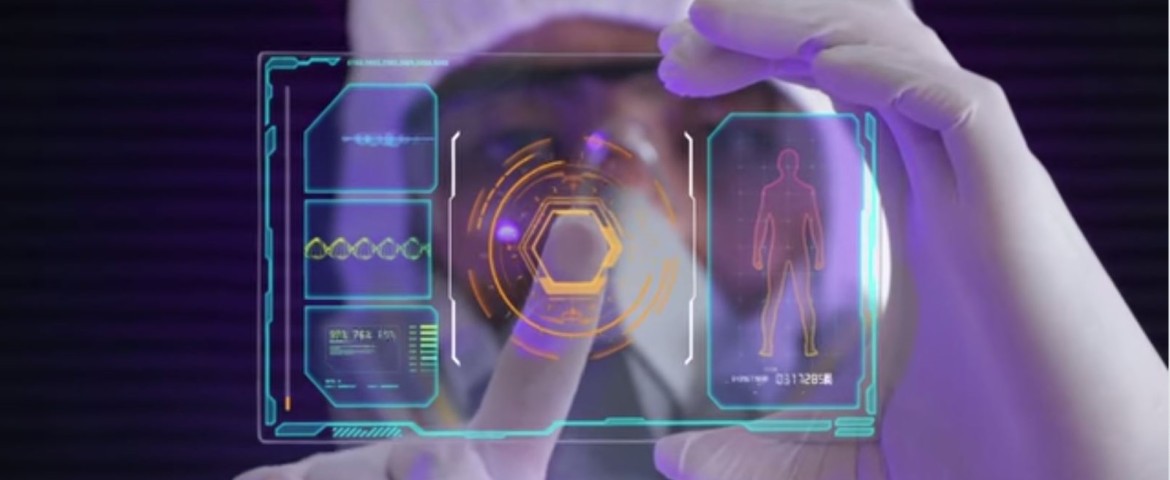By: Krischa Winright
Based on the research outlined below, it’s clear that our cell phones play a pivotal role in our day-to-day lives. And today, in health care, we are only just beginning to brush the surface in leveraging this technology to create tools and resources to help patients engage in their care.

Health systems and doctor’s offices have made large strides in incorporating more technology into their work. But there are many more exciting innovations on the horizon to make health care more efficient, connected, and help patients lead healthier lives. Here’s just a snapshot of ways technology is changing the face of health care:
Managing Chronic Conditions
Half of all Michiganders have at least one long-term health condition such as heart disease, asthma, cancer or diabetes. They have to see many different doctors and seek treatment in different settings. Many health systems are offering secure apps that allow patients to message physicians across the care network and get a response within minutes – even after hours. For example, applications like CareZone let family members plug into the process, helping patients stick to treatment plans and possibly prevent other health issues.
Personalized Health and Lifestyle Guidance
Web and mobile solutions will soon be able to tap into the “cloud” of information from a wearable device such as FitBit or iWatch to help guide people’s health in real time. Care teams will be able to access this data securely to provide personalized and targeted health advice through video tips and virtual encouragement.
Access to More Options and Comparative Price Information
Just like online booking did for travel, tools such as the Healthcare Bluebook allow patients to compare physicians, hospitals and pricing on health care services. On top of that, tools such as Cost Estimator, launched by Priority Health, will allow users to check their personal health plan coverage, too – whether selected by an employer or chosen on the Exchange. The tool indicates the price that the patient should expect to pay, all factors considered including their co-pays and deductible. Imagine finally knowing what your portion of the health care bill will be up front, before you even undergo a procedure – that’s what this tool can do.
Evolving E-visits
Many hospitals and health plans currently offer video or “telehealth” visits with doctors. Patients have 24/7 access to a health care team and can avoid unnecessary trips to urgent care or the emergency room for routine questions after hours. As these e-visits become more advanced and integrated, patients can visit instantly with physicians, who will treat more types of conditions and more complex health issues.
Making medicine personal
People value different things in health care experiences based on their lifestyle, level of independence and health condition. Like Amazon, health care will learn from personal preferences to share meaningful information with patients (and entire care communities) at key times such as connecting a patient to the orthopedist he needs after moving to a new city.
It’s an exciting time to be at the intersection of health and technology. I’ve been meeting with leaders across the state to help lead these conversations and inspire real change in terms of transparency and patient engagement. To see a few things Priority Health has been working on, check out the below video I shared at Techweek in Detroit.
Technology today is bringing health care to a tipping point where everyone – patients, providers and care teams – will benefit.
About the Author: Krischa Winright is the chief information officer for Priority Health and vice president of Information Technology for Spectrum Health. She is responsible for leading all aspects of the company’s technology efforts. She is accountable for the use of technology today, and its applicability for future corporate innovation and growth. Krischa has 20 years of technology experience, and more than 10 years of health care experience.


